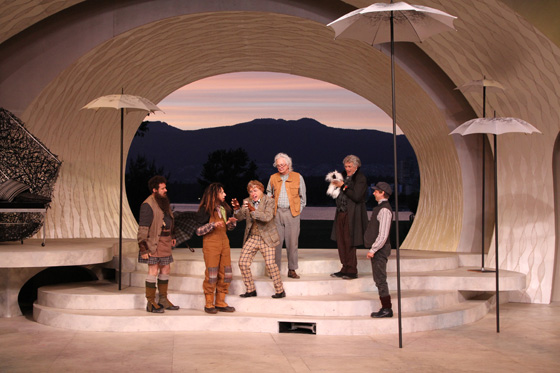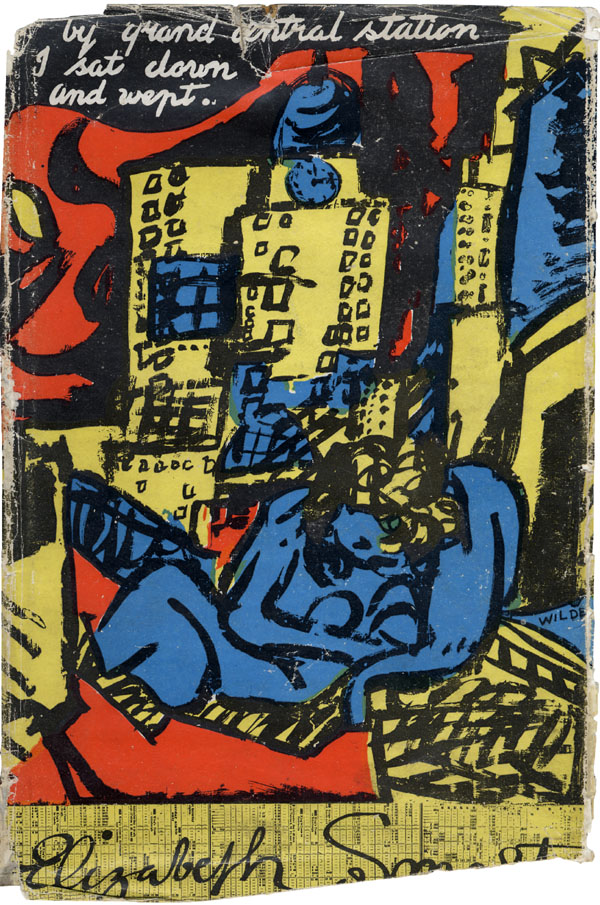As I mentioned in the last post, I skipped over the 10th grade honors English, which focused on American literature. I think over time I've gotten around to most of what would have been in that course, namely Fitzgerald's The Great Gatsby, Hemingway short stories (and possibly The Sun Also Rises, though intimations of infidelity run through that book), Miller's The Crucible and Hawthorne's The Scarlet Letter. I've also read a fair bit of Emerson and selections from Thoreau's Walden, though I am not sure I've ever read the whole thing, cover to cover. I've read a fair bit of Mark Twain already (
Messieurs Sawyer and Finn and Life on the Mississippi), leaving just a few gaps to be filled. I've covered several shorter Steinbeck novels as well. I've even read Moby Dick for kicks twice, for goodness' sakes.
Nonetheless, I am trying to think of what American lit. I probably should have read back then but didn't.* Here's a fairly representative list:
Hawthorne The House of Seven Gables
Thoreau Walden
(for reals this time)
Salinger The Catcher in the Rye
(no idea if this was assigned or an optional pick but I think I am well past the point I would be interested)
Harper Lee To Kill a Mockingbird (this one I really ought to just go ahead and read it)
Willa Cather My Antonia
Fitzgerald This Side of Paradise
Fitzgerald Tender is the Night
Hemingway A Farewell to Arms
Hemingway For Whom the Bell Tolls
Sinclair Lewis Babbitt
Sinclair Lewis Main Street (this might have been a bit long for high school)
Steinbeck Of Mice and Men
Steinbeck The Grapes of Wrath
Steinbeck East of Eden (ok, probably not a high school selection)
Agee Let Us Now Praise Famous Men
(an edition with the Walker Evans photos)
Sherwood Anderson Winesburg, Ohio
Thornton Wilder Our Town
(I've seen the play twice but never read it)
Edgar Lee Masters Spoon River Anthology
(I've read bits and pieces but not the whole thing. I'd have to be careful choosing the proper time though, as this is a real downer.)
(I think if I do get through these one day, I will feel I have finally made up for "skipping" that particular class.)
At University of Michigan, at one point I had four reading courses and something had to give now and again. The one book I regret not reading is:
Arnold Bennett The Old Wives' Tales
I actually remember my mom had to help round up used copies in the days before you could buy books on the internet, and I still didn't read the darn thing! But it is lurking on my TBR pile, so I expect to pay off this debt next year (edit -- it actually took until early 2018; it's a shame I waited so long, as it really is a very good novel).
(Minor update -- I came across an "ancient" paper that looked like it was listing all the novels that we were assigned in Honors English at UM. Apparently, I was supposed to have read Hardy's Jude the Obscure as well. Oops. Well, it will get added to the TBR list eventually, but I don't feel quite as bad for skipping over that -- or perhaps just skimming it back in the day to get through class.)
Now my single biggest (academic) regret from University of Michigan is that I skipped out of the Great Books courses. I had a different honors course that was quite rewarding (the very philosophical "Ways of Thinking," I believe), but I should have found a way to take both. Or dropped physics a lot sooner and audited Great Books. I really was keeping my options open by taking humanities and math and physics (and even art history and a couple of courses on comparative religion). However, I missed out on my chance to have Dante taught by
Ralph Williams. As it happens, I did take The Bible as Literature with Williams, so I did get the Williams experience, but all in all I still think I would have gotten more from taking Great Books. (It really is a shame he apparently never recorded his lectures. Update: actually he did record what is essentially a
podcast of his lectures on Shakespeare and one on the Book of Job, which I will definitely have to download, and he has a series of Youtube videos as well. So that is a huge plus, though I am still not sure there are any recordings of Williams on Virgil or Dante, but I will keep seeking.)
This is what I have reconstructed as being part of the series at least in many years (it really varies quite a bit whether the first part is Greek only or Greek and Roman or even the Old Testament mixed in, so this is actually a bit overstuffed for any particular class**):
Plato The Symposium
Aristotle Poetics
Homer The Iliad
Homer The Odyssey
Herodotus The Histories
Aeschylus The Oresteia (Agamemnon, The Libation Bearers, The Eumenides)
Thucydides History of the Peloponnesian War
Sophocles Oedipus the King
Sophocles Oedipus at Colonus
Sophocles Antigone
Euripedes Medea
Euripedes Hippolytus
Euripedes The Trojan Women
Euripedes Bacchae
Virgil The Aeneid
Ovid Metamorphoses
Petronius The Satyricon
Marcus Aurelius Meditations
Selections from the Old Testament of the Bible
Dante The Divine Comedy (Inferno, Purgatorio, Paradiso)
Confessions of St. Augustine
Boccaccio The Decameron
Beowulf
Chaucer The Canterbury Tales
(I'm not even sure of Chaucer, but I imagine it is in there in some years in the 2nd part of the course, unless there is just too much of a turf war with the English department claiming Chaucer.) This is basically where my sources break down.
Now I've read nearly all of these on my own, though I could certainly use a refresher on the Greek drama. The ones that I have not read and certainly not studied carefully are:
Aristotle Poetics
Herodotus The Histories
Thucydides History of the Peloponnesian War
Euripedes Hippolytus
Euripedes Bacchae
Virgil The Aeneid
Petronius The Satyricon
Marcus Aurelius Meditations
Confessions of St. Augustine
That's actually not all that daunting, and I'll go ahead and try to add a couple periodically to the updated TBR pile. (Though more recently I was inspired to do a deeper dive into Roman literature, which means adding The Nature of Things
✓ by Lucretius, Juvenal's Satires, Horace's Odes and The Golden Ass
✓ by Apuleius.)
* Feel free to comment if you think I missed something, and I will respond, including whether I have actually read the work or not.
** Again, jump in if I have missed something that was typically part of Great Books I or II, and I'll add it to the list.






